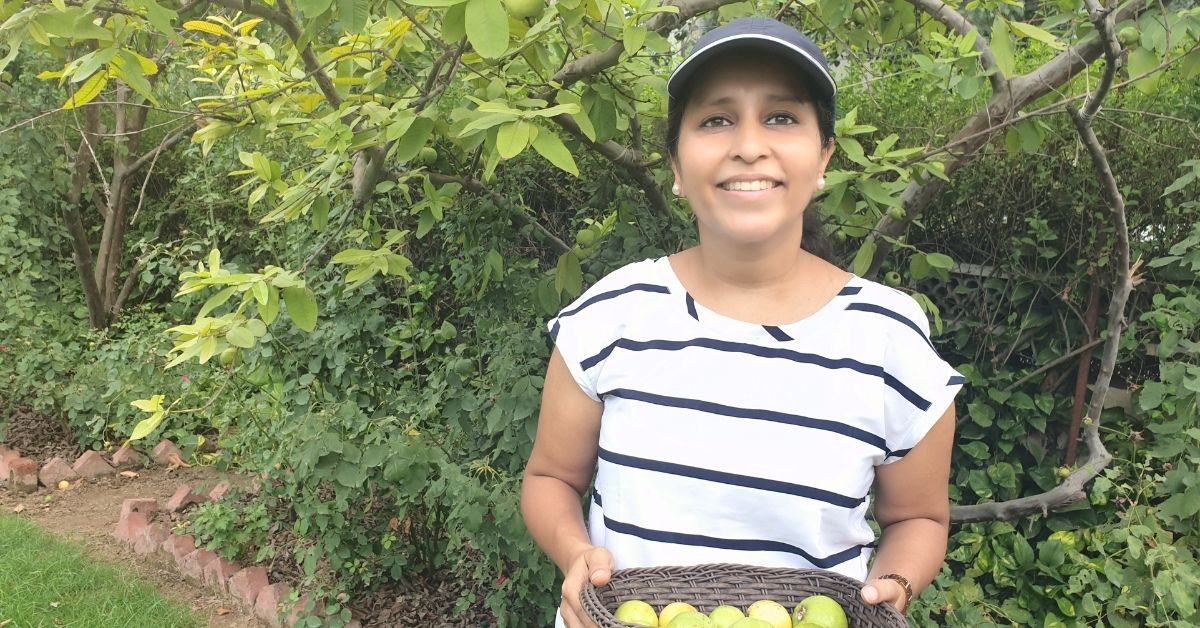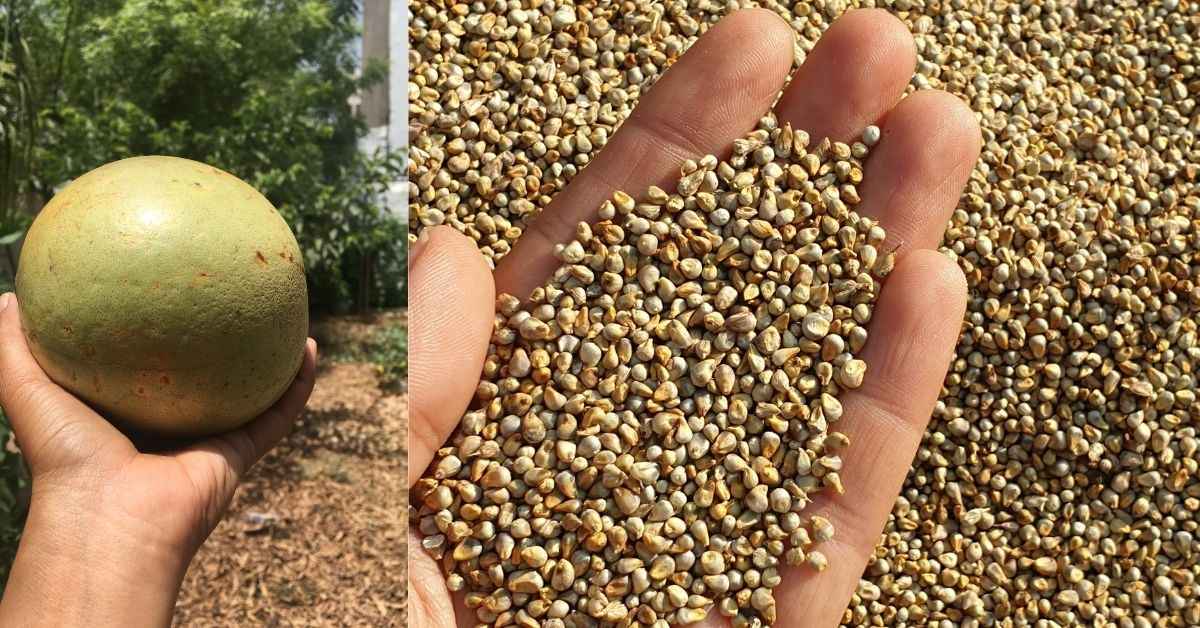Located on the banks of the scenic River Yamuna, between Mathura and Agra, is a luscious green 40-acre farm called Advait Living which is known for its ‘unique’ agricultural methods. This is where you can find Meenakshi Kishore, a first-generation organic farmer who left her corporate job to make a difference in the way the farm is run and to help combat climate change in her own way.
Meenakshi spent most of her life away from the family farm in Agra. She spent her formative years in a boarding school and then went on to pursue her higher studies in Delhi and her Master’s in Business Administration (MBA) from the Symbiosis Institute of Management in Pune. For the next 15 years, she worked at various multinational companies, private equities and venture capital firms holding senior-level corporate positions.
In 2016, when she was nearing retirement, Meenakshi decided to leave her corporate life behind in Mumbai and come back home to Agra, where her parents live.

Switching to sustainable farming
Advait Living farms was a family-run business for over three decades and was used for traditional farming of crops such as mustard and wheat. A year after moving back, Meenakshi practised traditional farming but as she began growing her own food she realised the difference in its quality as compared to processed food, and since then there has been no looking back.
Describing the exact moment when she realised she wanted to change the way farming was done at Advait Living, she says, “It was one of the initial days since I had come home. We had gone out to the farm where we had some lemon trees. We broke some lemons and brought almost 25 kilograms of it home. My mother was shocked and asked what she would do with so many lemons! It was then that I realised the abundance of produce from a single tree. It taught me to be content with nature, as it gives us enough and more than what we need.”
Meenakshi’s decision to shift from traditional farming to a more sustainable form of agriculture was met with immense support from her father, Ashok Kishore and sister, Somya Kishore, who manages the farm alongside Meenakshi. “As a family, we are quite supportive of each other in doing something new. This was something my sister and I saw passionately,” says Meenakshi.
Inception of permaculture and regenerative farming
But the shift from traditional farming was not easy. With no formal background or prior experience in farming methods, Meenakshi began to realise there is a lack of practical training and learning on the field. She says “One of the biggest challenges in India when starting organic farming is that there is a huge dearth of practically trained experts. Experts are usually only academically trained but lack the practical knowledge that is essential when it comes to farming.”
In order to learn these farming methods, she began meeting and networking with farmers in and around Agra, who were practising organic farming. On a quest to learn more about sustainable agricultural practices she visited a relative’s farm in Chandigarh where permaculture and regenerative farming were practised. This gave her an insight into the science behind these methods and she says this experience inspired her to bring permaculture and regenerative farming to Advait Living.
Permaculture is an attempt to optimise land use in a manner that future generations can continue to make use of it as well. Regenerative farming goes a step further, it is a holistic land management practice that “does no harm” to the land but regenerates and revitalises the soil and the environment. Regenerative farming incorporates permaculture and organic farming practices to increase food production, farmer’s income and topsoil. Meenakshi strongly believes that regenerative farming is the way forward. The process she employs while growing crops involves no tilling, no usage of chemical fertilizers or pesticides while using natural water management principles and integrating biodiversity that is already present.
“The basic principle of ‘work with nature’ clicked with us,” she says.

Besides her initial struggle to learn regenerative farming Meenakshi admits she faced some difficulties being a woman practicing agriculture in the state of Uttar Pradesh where there is deep-rooted gender discrimination and high crime rates against women. She adds that her father’s constant support and involvement in the day-to-day activities helps her carry out her work without having to worry much about this aspect.
Helping small and marginal farmers
About a year and a half ago Meenakshi set up an eponymous small retail store — Advait Living Farms, in Agra to sell a few fruits and vegetables but mainly focusing on non-perishables.
She soon realised consumers needed a range of products and decided to partner with small and marginal farmers to bring their produce to the store.

She had a two-fold motive when working with local farmers. The first was to provide better market access to those farmers who practice organic farming and the second was to promote regenerative farming.
“Market access has always been a big challenge for farmers, especially small farmers. When going to a mandi there is no difference between organic or non-organic farming, you only get the mandi rates. A farmer is losing out. That is when we decided to start working with small farmers,” she says.

Advait Living works with farmers having less than 2 hectares of land who are already practising organic farming in Uttar Pradesh, Chhattisgarh and Rajasthan. There are also a number of marginal farmers working on their farm on a full-time basis who have been trained in a particular set of skills.
To fall in love with nature is the way forward
Today, Advait Living makes about Rs 50 lakh a year and has reached more than 1000 people. Meenakshi is extremely positive about the future and believes the company can grow four-folds by the next year. She is in talks with big corporates as she plans to popularise regenerative farming by demonstrating on her own farm how this method is “pro-climate” and viable. Meenakshi says, “Regenerative farming can help farmers triple their income. Regenerative farming works in alignment with nature. In the long run it is what our planet needs.”
Just as the name ‘Advait’, loosely translated means everything is one, Meenakshi believes that nature is a part of us and just as nature impacts us, our actions impact nature. She signs off with a message encouraging consumers to give sustainable food and her style of living a chance. “Falling in love with nature has made us more grateful for what is available in the world. There is enough and more for all of us and that’s what drives us today,” she says.
Edited by Yoshita Rao
No comments:
Post a Comment